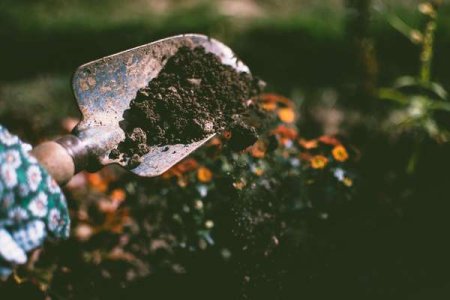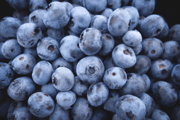Alert raised as bacteria found in US gardens has been linked to five deaths—Are you at risk?
By
Ash.S
- Replies 0
In the tranquility of our backyards, where we cultivate flowers and vegetables, there might be an unseen threat that even the most seasoned gardeners could overlook. It's a stark reminder that, while beautiful, nature can harbor dangers that demand our respect and caution.
Experts across the country are drawing attention to a deadly bacterium that has recently been identified in soil, which could have significant health impacts.
The bacterium in question is Burkholderia pseudomallei, which thrives in soil and water, particularly in tropical climates. The bacterium , which is transmitted through direct contact with contaminated soil, has been linked to a serious infection known as Melioidosis. This condition can lead to severe lung infections, resulting in pneumonia or sepsis, and carries a mortality rate that can reach up to 50%.
In the past year, this silent killer has claimed five lives in Australia, raising concerns about its potential spread to gardens in the United States. The bacteria can enter the body through cuts or abrasions in the skin, ingestion, or, most worryingly, by inhalation during severe weather events, such as monsoons and tropical cyclones, that aerosolize the bacteria.
Professor Bart Currie from the Menzies School of Health Research has highlighted the risks posed by extreme weather, which can increase the likelihood of the bacteria becoming airborne and inhaled by unsuspecting individuals. “Even healthy people can get very sick from it. That’s what causes the most severe form of melioidosis, which is a very severe pneumonia, which turns into blood poisoning”, Curre said.
While commonly associated with regions in Asia and Australia, Melioidosis has made its presence known in the Western Hemisphere as well, with cases reported in the US Virgin Islands, Puerto Rico, and even as far north as Mississippi. In 2021, the Centers for Disease Control and Prevention (CDC) identified cases in Texas, Minnesota, Kansas, and Georgia, leading to a declaration of endemic in the Gulf Coast region by the Centre for Disease Control and Prevention (CDC).
The CDC has warned that individuals with kidney and liver problems are at heightened risk, though the disease can sometimes present no symptoms at all. When symptoms do manifest, they can include fever, headache, muscle pain, confusion, chest pain, difficulty breathing, and seizures. Treatment involves a rigorous course of IV antibiotics followed by months of oral antibiotics.
Melioidosis is often referred to as 'the great mimicker' due to its ability to present symptoms similar to many other conditions, making it difficult to diagnose. Julia Petras from the CDC's National Center for Emerging and Zoonotic Infectious Diseases has emphasized that the disease is “under-reported, under-diagnosed, and under-recognized”, calling it 'the neglected, neglected tropical disease.'
As members of The GrayVine community, many of us find joy and relaxation in our gardens. To ensure that we continue to enjoy this pastime safely, here are some precautions we can take:
1. Wear protective gear: Always wear gloves when gardening, and consider wearing a mask during stormy, windy weather or when handling soil in areas known to have cases of Melioidosis.
2. Practicegood wound care: Clean any cuts or abrasions immediately and cover them with waterproof dressings before gardening.
3. Stay informed: Stay updated with local health advisories, especially if you live in or travel to tropical regions.
4. Know the symptoms: Familiarize yourself with the signs of Melioidosis and seek medical attention if you experience any of them, particularly after gardening.
5. Maintain a healthy lifestyle: A strong immune system can help fight off infections, so prioritize a balanced diet, regular exercise, and adequate sleep.
What does this mean for you? While the risk of contracting Melioidosis in the US remains relatively low, it's important to stay vigilant and informed. By taking simple precautions, we can continue to enjoy the pleasures of gardening without undue worry.
We invite you to share your thoughts and experiences. Have you taken any special precautions in your garden? Do you have any tips for fellow gardeners on staying safe while enjoying the outdoors? Your insights could be invaluable to our community. Remember, knowledge is power, and by staying informed and prepared, we can continue to thrive in our gardens and beyond. Let's nurture our green spaces with care and caution, ensuring they remain havens of joy, not sources of harm.

Experts across the country are drawing attention to a deadly bacterium that has recently been identified in soil, which could have significant health impacts.
The bacterium in question is Burkholderia pseudomallei, which thrives in soil and water, particularly in tropical climates. The bacterium , which is transmitted through direct contact with contaminated soil, has been linked to a serious infection known as Melioidosis. This condition can lead to severe lung infections, resulting in pneumonia or sepsis, and carries a mortality rate that can reach up to 50%.
In the past year, this silent killer has claimed five lives in Australia, raising concerns about its potential spread to gardens in the United States. The bacteria can enter the body through cuts or abrasions in the skin, ingestion, or, most worryingly, by inhalation during severe weather events, such as monsoons and tropical cyclones, that aerosolize the bacteria.
Professor Bart Currie from the Menzies School of Health Research has highlighted the risks posed by extreme weather, which can increase the likelihood of the bacteria becoming airborne and inhaled by unsuspecting individuals. “Even healthy people can get very sick from it. That’s what causes the most severe form of melioidosis, which is a very severe pneumonia, which turns into blood poisoning”, Curre said.
While commonly associated with regions in Asia and Australia, Melioidosis has made its presence known in the Western Hemisphere as well, with cases reported in the US Virgin Islands, Puerto Rico, and even as far north as Mississippi. In 2021, the Centers for Disease Control and Prevention (CDC) identified cases in Texas, Minnesota, Kansas, and Georgia, leading to a declaration of endemic in the Gulf Coast region by the Centre for Disease Control and Prevention (CDC).
The CDC has warned that individuals with kidney and liver problems are at heightened risk, though the disease can sometimes present no symptoms at all. When symptoms do manifest, they can include fever, headache, muscle pain, confusion, chest pain, difficulty breathing, and seizures. Treatment involves a rigorous course of IV antibiotics followed by months of oral antibiotics.
Melioidosis is often referred to as 'the great mimicker' due to its ability to present symptoms similar to many other conditions, making it difficult to diagnose. Julia Petras from the CDC's National Center for Emerging and Zoonotic Infectious Diseases has emphasized that the disease is “under-reported, under-diagnosed, and under-recognized”, calling it 'the neglected, neglected tropical disease.'
As members of The GrayVine community, many of us find joy and relaxation in our gardens. To ensure that we continue to enjoy this pastime safely, here are some precautions we can take:
1. Wear protective gear: Always wear gloves when gardening, and consider wearing a mask during stormy, windy weather or when handling soil in areas known to have cases of Melioidosis.
2. Practicegood wound care: Clean any cuts or abrasions immediately and cover them with waterproof dressings before gardening.
3. Stay informed: Stay updated with local health advisories, especially if you live in or travel to tropical regions.
4. Know the symptoms: Familiarize yourself with the signs of Melioidosis and seek medical attention if you experience any of them, particularly after gardening.
5. Maintain a healthy lifestyle: A strong immune system can help fight off infections, so prioritize a balanced diet, regular exercise, and adequate sleep.
What does this mean for you? While the risk of contracting Melioidosis in the US remains relatively low, it's important to stay vigilant and informed. By taking simple precautions, we can continue to enjoy the pleasures of gardening without undue worry.
We invite you to share your thoughts and experiences. Have you taken any special precautions in your garden? Do you have any tips for fellow gardeners on staying safe while enjoying the outdoors? Your insights could be invaluable to our community. Remember, knowledge is power, and by staying informed and prepared, we can continue to thrive in our gardens and beyond. Let's nurture our green spaces with care and caution, ensuring they remain havens of joy, not sources of harm.
Key Takeaways
- Burkholderia pseudomallei, a bacteria that can cause a severe infection called Melioidosis with high mortality rates, has been found in soil and water in tropical regions.
- In Australia, there have been multiple fatalities due to the disease, with five deaths reported in 2024 alone.
- Risk of inhalation of the bacterium is specifically worrisome after severe weather events such as monsoonal storms and tropical cyclones, which help spread the bacterium.
- Though most commonly found in Asia and Australia, cases of Melioidosis have been reported in the US, with the CDC declaring the disease endemic in the Gulf Coast.
- Melioidosis is known as the 'great mimicker' due to its variety of symptoms, which can include fever, headache, muscle pain, and more severe symptoms like chest pain and seizure; it requires extensive antibiotic treatment.







